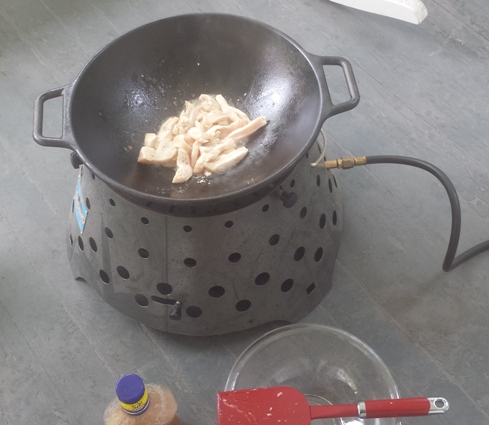At some point in your journey into preparedness, you wind up starting to stock up on medical supplies. Not just first aid stuff, although that gets piled high too, but ‘medical supplies’…things like gloves, sutures, forceps, drapes, irrigation tools, scalpels, etc, etc….things that really go beyond izzy bandages and SAM splints. When it comes up in discussion there is invariably some wag who opines that storing medical stuff that you have no idea how to use is foolish and even dangerous, since it may encourage you to use it when you have no idea how to use it correctly.
I heartily disagree. First of all, I’m a fairly intelligent guy…if I don’t know how to use something, I can always learn. (And you should always be learning…) But here is the main reason I think that storing medical supplies that you don’t know how to use isn’t a bad thing: just because you don’t know how to use it doesn’t mean there won’t be someone else around who does.
How often do we read about car accidents where one of the first people on the scene was an EMT, nurse, or doctor, on their way to work that morning? If you’re in a crisis situation and you don’t know how to help somebody, there’s a good chance that there is someone with the talent, but not the tools, nearby. Provide them the tools.
Another good reason is evidenced in Venezuela right now. In many parts of the world, hospital care is dependent on the patient providing their own supplies. Oh, you may luck out and find a hospital that isn’t re-using syringes, isn’t using medicine that was stored improperly, isn’t using medicines of questionable origin and purity, but to be perfectly safe…you bring your own. Check this out:
As her 3-month-old daughter was recovering from heart surgery at one of the leading public hospitals in Caracas, Venezuela, doctors told Yamila she needed to go out and buy basic medical supplies for her baby that the hospital had run out of. They gave her a list that included catheters, needles for administering IV fluids, antibiotics and other medications, the mother told a Human Rights Watch researcher in November.
Leaving her daughter’s side, Yamila went on a frantic search for medical supplies so basic that no hospital — let alone one of the country’s largest teaching hospitals — should ever run out of them. But none of the hospitals or pharmacies she visited had them in stock. In the end, despite concerns about the quality of the supplies, and unsure whether she had the correct catheters and needles for a newborn, Yamila had no option but to buy whatever she could find on the black market — with no quality guarantees.
(Here’s another article on Venezuela’s medical crisis.)
In this country, it’s not that difficult to stock up on that sort of thing. In fact, you can get an amazing amount of first aid and medical supplies (and equipment) off eBay if you know what you’re looking for. I think I bought a case of 4800 bandaids for something like twenty bucks. But, there’s also sutures, scalpels, lights, drapes, forceps, retractors, braces, crutches, portable x-ray machines, etc, etc. You can create a very passable medical clinic/station using nothing but your laptop, a debit card, and UPS.
When ‘The Big One’, or whatever your particular flavor of apocalypse is, occurs it will stretch your local hospitals stores to the limit. The .gov, occasionally showing some good decision-making skills, has the Strategic National Stockpile. (More here.) The notion here is that when Mayberry Hospital gets virtually stripped to the walls as patients flood in and are laid out in makeshift wards in the parking lot, the feds can swoop in with whatever passes for a Packaged Disaster Hospital these days. (The PDH’s are still out there, in some cases…like lost Cold War time capsules. This one was discovered in the base of the Brooklyn Bridge a few years back.)
My point is that it is not unreasonable to stock medical supplies that may be beyond your ability to use. However, just because you don’t know how to use something now is no excuse not to perhaps learn how to use it for a later time. When things go sideways it’s a safe bet your local medical facilities will be crowded, understaffed, overworked, overwhelmed, and probably underequipped. You’re future is a lot brighter when your neighbor, the retired doctor or nurse, says “Yeah, I can fix that but we need some…” and you trot to your supply locker and produce it.
Recommended reading:
Even if you’re not doing DIY surgery, books like these give you excellent ‘shopping lists’ for things to keep on hand.

